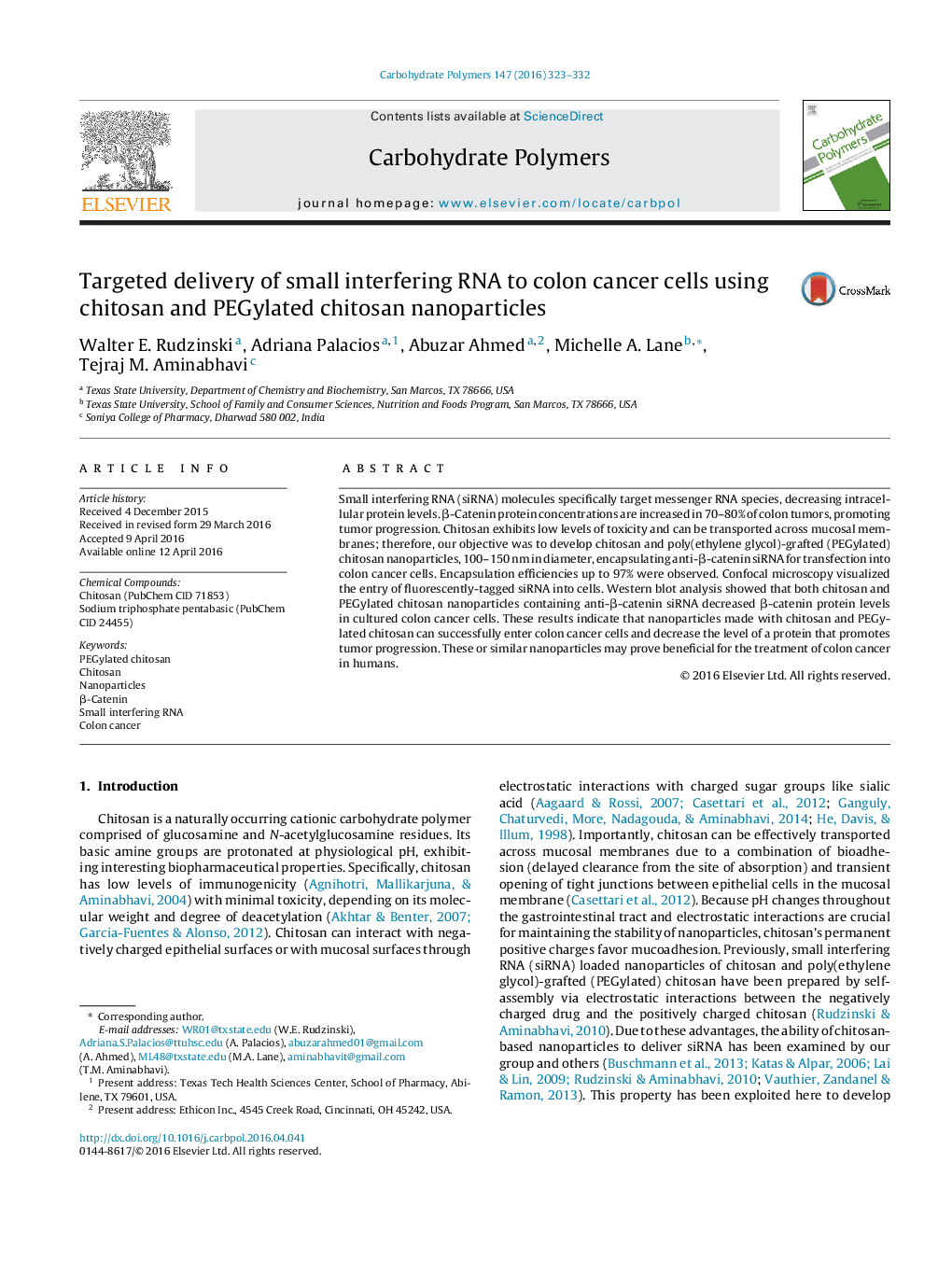| Article ID | Journal | Published Year | Pages | File Type |
|---|---|---|---|---|
| 1383103 | Carbohydrate Polymers | 2016 | 10 Pages |
•Chitosan-based nanoparticles containing siRNA were of the correct size to enter cells.•Nanoparticles containing fluorescent siRNA entered human colon cancer cells.•Nanoparticles with siRNA targeting β-catenin decreased this protein in cancer cells.
Small interfering RNA (siRNA) molecules specifically target messenger RNA species, decreasing intracellular protein levels. β-Catenin protein concentrations are increased in 70–80% of colon tumors, promoting tumor progression. Chitosan exhibits low levels of toxicity and can be transported across mucosal membranes; therefore, our objective was to develop chitosan and poly(ethylene glycol)-grafted (PEGylated) chitosan nanoparticles, 100–150 nm in diameter, encapsulating anti-β-catenin siRNA for transfection into colon cancer cells. Encapsulation efficiencies up to 97% were observed. Confocal microscopy visualized the entry of fluorescently-tagged siRNA into cells. Western blot analysis showed that both chitosan and PEGylated chitosan nanoparticles containing anti-β-catenin siRNA decreased β-catenin protein levels in cultured colon cancer cells. These results indicate that nanoparticles made with chitosan and PEGylated chitosan can successfully enter colon cancer cells and decrease the level of a protein that promotes tumor progression. These or similar nanoparticles may prove beneficial for the treatment of colon cancer in humans.
